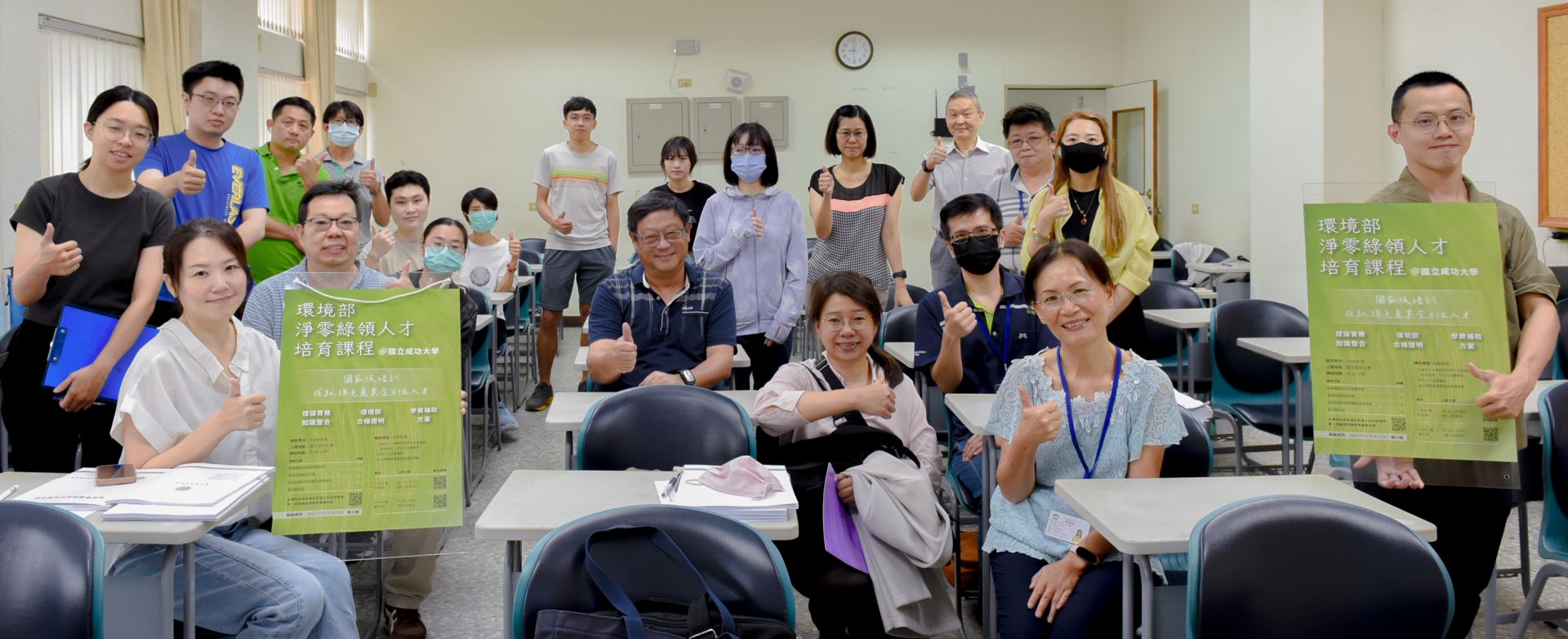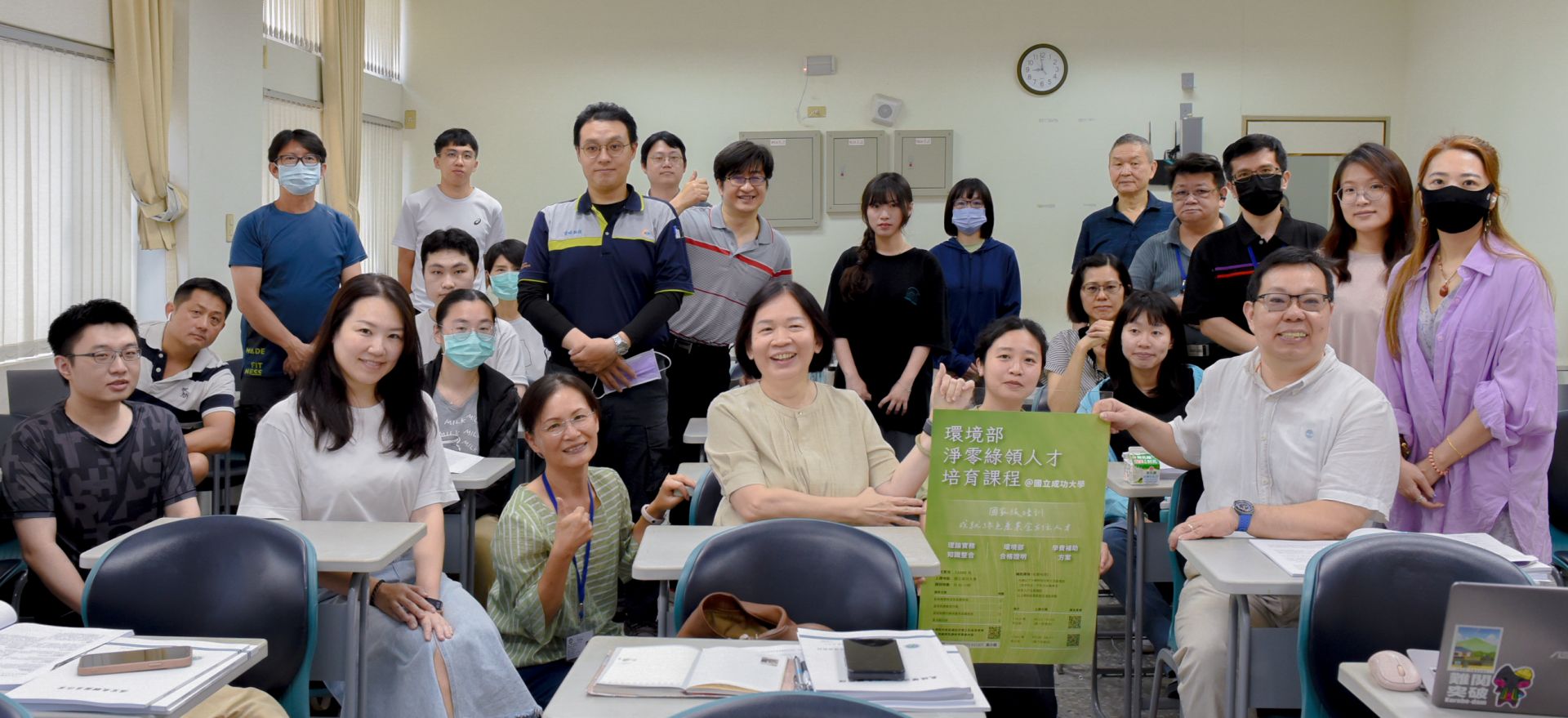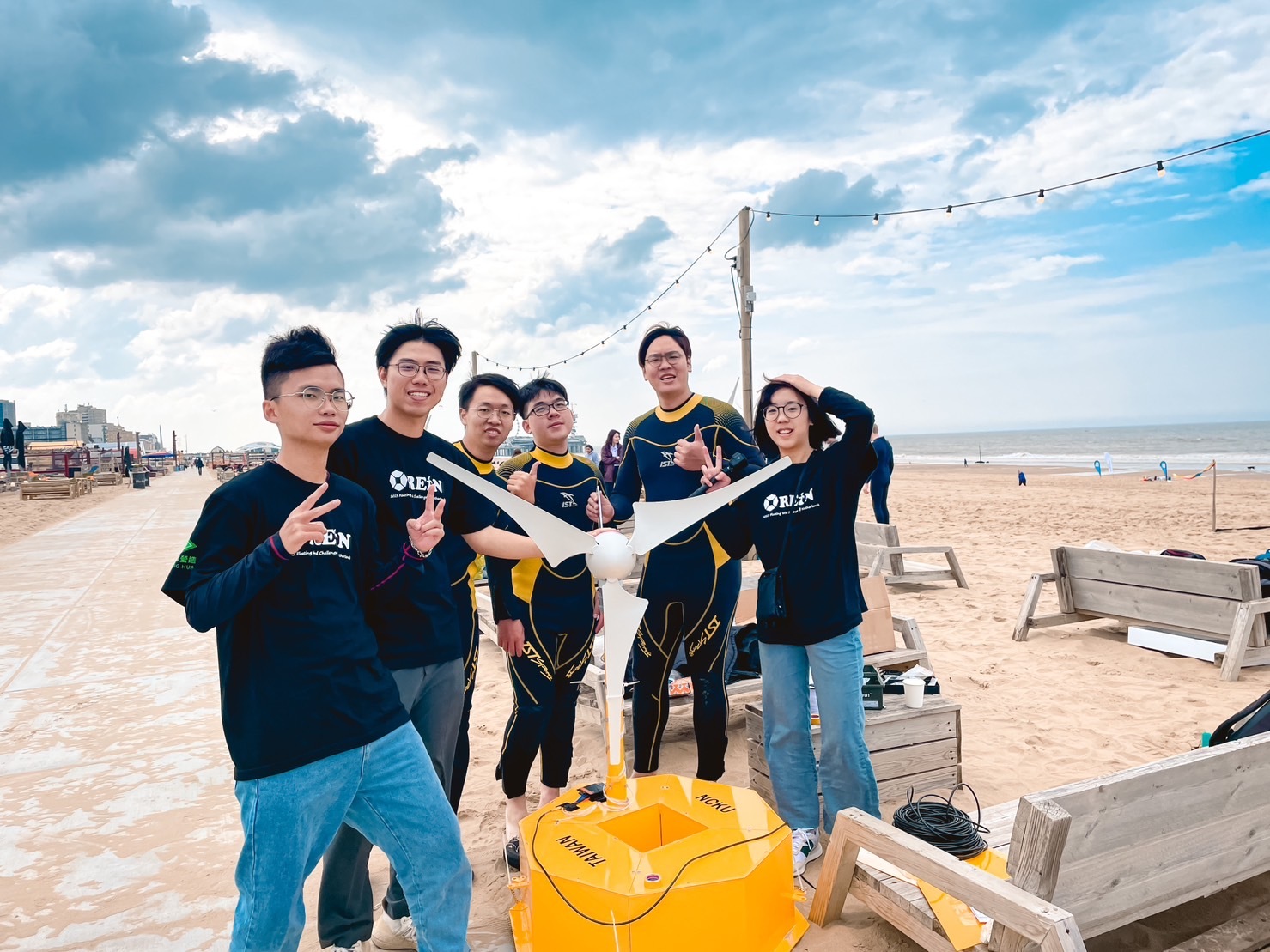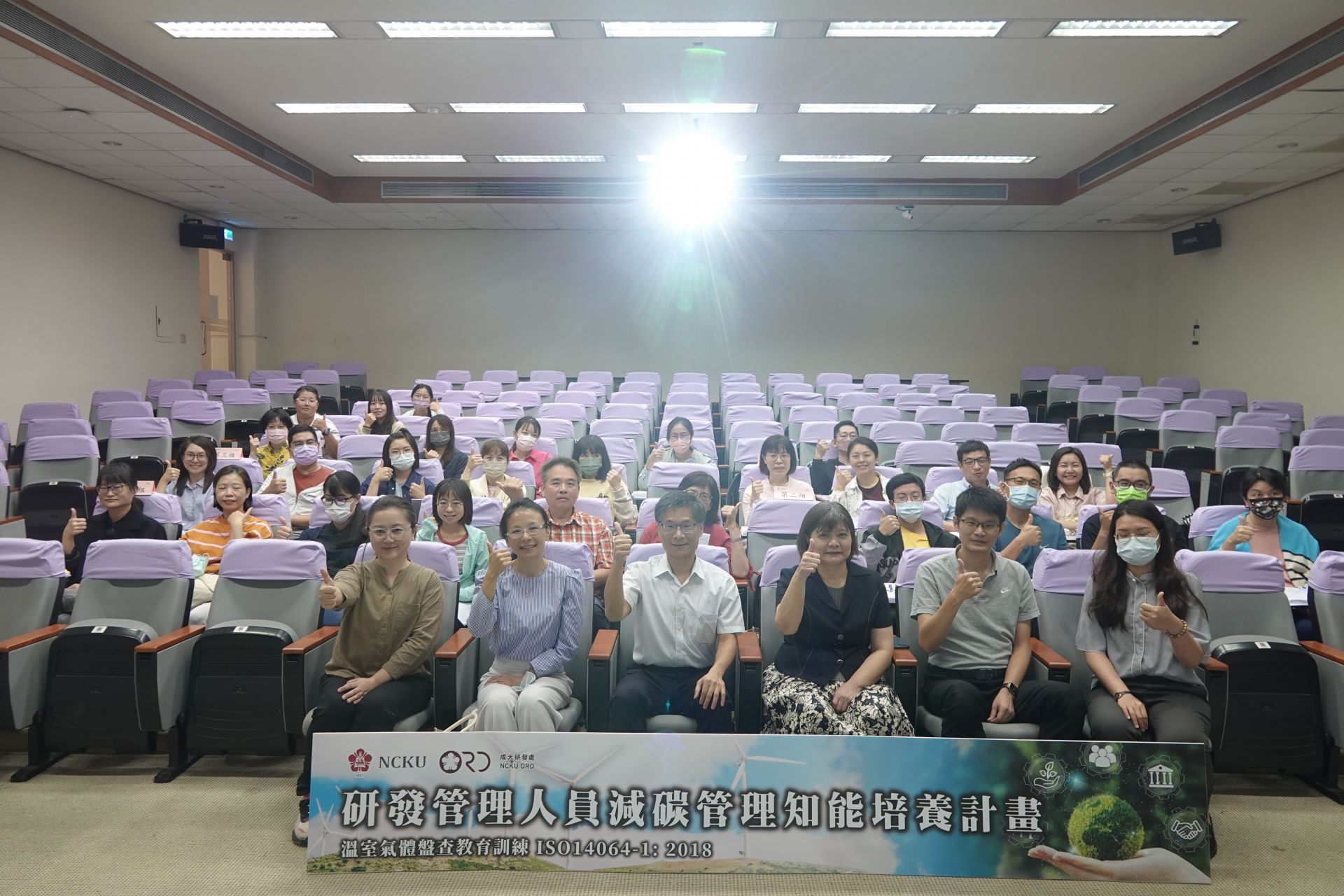In alignment with Taiwan’s 2050 Net-Zero Emissions national goal, National Cheng Kung University (NCKU) officially launched its Environmental Protection Administration’s Net-Zero Green Talent Development Program on the 23rd. The program brings together a strong lineup of instructors from government agencies, academia, and industry, including Distinguished Lecturer Tzu-Ching Chang from NCKU Innovation Headquarters, and Senior Technical Specialist Mei-Kuei Chu from the Tainan City Government Environmental Protection Bureau. Course topics cover climate change, greenhouse gas emissions, carbon inventories, carbon footprint assessments, voluntary carbon reduction mechanisms, and verification systems. Participants include a wide range of learners—not only NCKU students but also nearly half from the professional workforce.
Distinguished Lecturer Tzu-Ching Chang, former Administrator of the Environmental Protection Administration and now Distinguished Lecturer at NCKU, played a pivotal role in formulating the Climate Change Response Act. With extensive experience in environmental governance, he is a key lecturer in the program. His lecture traced the evolution of global warming and climate change discussions, leading into Taiwan’s carbon fee policy. Distinguished Lecturer Chang emphasized that carbon fees are not tools for government revenue, but rather economic instruments to stimulate carbon reduction. “Creating differentiation through economic incentives is crucial. Those who invest in carbon reduction should enjoy favorable rates, while those who don’t should not,” he stated. This mechanism is designed to motivate industries to invest in low-carbon solutions.
The course also featured Senior Technical Specialist Mei-Kuei Chu from the Tainan Environmental Protection Bureau, who provided practical guidance on greenhouse gas inventory procedures. She offered detailed analysis using examples from the cement, semiconductor, and steel industries, helping learners align theoretical concepts with real-world applications. Her session enhanced participants’ skills in preparing GHG inventories and drafting formal emissions reports.
As the Southern Regional Training Hub of the Ministry of Environment’s Net-Zero Green Talent Development Alliance, NCKU collaborates with 8 universities in southern Taiwan — including National Chiayi University, National Chung Cheng University, Kun Shan University, Chung Hwa University of Medical Technology, Cheng Shiu University, National University of Kaohsiung, National Sun Yat-sen University, and Wenzao Ursuline University of Languages — to jointly cultivate future green professionals. The program recently launched its 8-day intensive training course, open to both university students and members of the public, with no restriction on academic background. Financial aid is provided for students and individuals from low-income and middle-income households. Those who complete the program and pass the assessments will receive an official certificate issued by the Ministry of Environment, becoming part of the first certified cohort of Net-Zero Green Talents, prepared to enter the future green workforce.
Distinguished Lecturer Tzu-Ching Chang, former Administrator of the Environmental Protection Administration and now Distinguished Lecturer at NCKU, played a pivotal role in formulating the Climate Change Response Act. With extensive experience in environmental governance, he is a key lecturer in the program. His lecture traced the evolution of global warming and climate change discussions, leading into Taiwan’s carbon fee policy. Distinguished Lecturer Chang emphasized that carbon fees are not tools for government revenue, but rather economic instruments to stimulate carbon reduction. “Creating differentiation through economic incentives is crucial. Those who invest in carbon reduction should enjoy favorable rates, while those who don’t should not,” he stated. This mechanism is designed to motivate industries to invest in low-carbon solutions.
The course also featured Senior Technical Specialist Mei-Kuei Chu from the Tainan Environmental Protection Bureau, who provided practical guidance on greenhouse gas inventory procedures. She offered detailed analysis using examples from the cement, semiconductor, and steel industries, helping learners align theoretical concepts with real-world applications. Her session enhanced participants’ skills in preparing GHG inventories and drafting formal emissions reports.
As the Southern Regional Training Hub of the Ministry of Environment’s Net-Zero Green Talent Development Alliance, NCKU collaborates with 8 universities in southern Taiwan — including National Chiayi University, National Chung Cheng University, Kun Shan University, Chung Hwa University of Medical Technology, Cheng Shiu University, National University of Kaohsiung, National Sun Yat-sen University, and Wenzao Ursuline University of Languages — to jointly cultivate future green professionals. The program recently launched its 8-day intensive training course, open to both university students and members of the public, with no restriction on academic background. Financial aid is provided for students and individuals from low-income and middle-income households. Those who complete the program and pass the assessments will receive an official certificate issued by the Ministry of Environment, becoming part of the first certified cohort of Net-Zero Green Talents, prepared to enter the future green workforce.

NCKU has launched its Net-Zero Green Talent Development Program, featuring a course taught by Distinguished Lecturer Tzu-Ching Chang (center, in blue) from the NCKU Innovation Headquarters.

NCKU has launched its Net-Zero Green Talent Development Program, inviting Senior Technical Specialist Mei-Kuei Chu (center, in beige) from the Tainan City Government Environmental Protection Bureau as a guest lecturer.






















